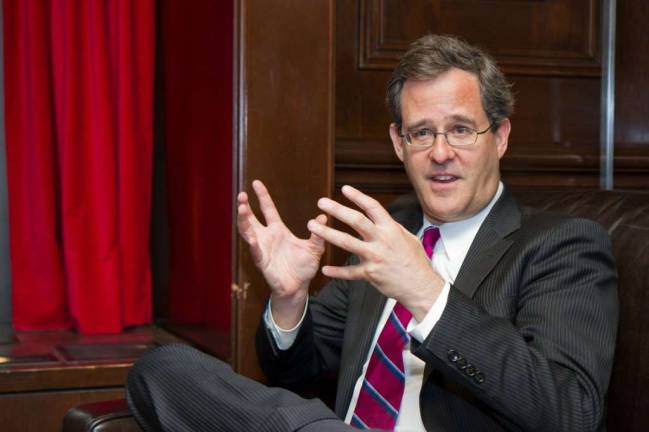Can a Mayor Influence Economic Justice?

The biggest factor in getting our economy on track is providing an even playing field for education A wise upper middle class friend recently told me that her children will not inherit anything from their parents. "Their private school and college tuitions are their inheritance." Another friend, raised in England, has always expressed bafflement about the expense of private schools and colleges in America. He received a world-class education, at English public schools and Oxford, virtually for nothing. I give these examples, because today in New York (and throughout America) we have a public education crisis of epic proportions. For the lower classes, who strive to make sure their children do better than they have done, the American dream is fading. For the middle class and upper middle class, the choice is either to trade off a potentially well-funded retirement or to consign one's children to decades of debt in order to receive a strong education. New York City's public schools have been on a downward cycle for almost five decades and although the Bloomberg administration made modest strides in the past decade in certain areas, the usually confident mayor recently told The Atlantic: "We didn't move the needle enough." He's right. His successor will have to move the needle dramatically and quickly to ensure that we don't allow another generation of kids to fail -- by dropping out or failing to be college ready or failing to have the skills necessary for a 21st century job. Let's look at the areas where Bloomberg has succeeded, by most measures: the high school graduation rate is up from 45 percent to 60 percent since Bloomberg took office. That's good. But three-quarters of those graduates, who enter our City University system, need remediation. That's not good. The City has created more than 100 charter schools in underserved neighborhoods like Harlem and Crown Heights, offering parents choices where none existed before. More than 50,000 kids are on waiting lists for charter schools, a good sign that they are a desirable option for parents who lived in neighborhoods with failing public schools. That's good. But charter schools only serve 50,000 kids in New York, less than 5 percent of the overall population of school-aged children. And the amount of political dueling that has resulted from charter school openings in middle class neighborhoods and their co-location with other public high schools has detracted from the pressing need to focus on teacher training and professional development at ALL public schools. That's not good. We need a mayor in 2014 who will pick a schools chancellor who has the deft political touch to win over the City's 1.5 million frustrated parents while also becoming a champion for teacher training and making principals master teachers whose evaluations of teachers are respected and welcomed. We need a mayor who understands that after teacher training and mentoring, one of the top priorities will be to build a world-class network of career and technical high schools to dramatically reduce drop-out rates and give our most disaffected learners a chance to learn technological and vocational skills that will lead to well-paying 21st century jobs. We also need a mayor who will focus less on closing "failing" schools and more on cost-effectively rebuilding our crumbling public schools. Of the current field of mayoral candidates, no one has offered a comprehensive plan for fixing public education -- and thus solving a big piece of the economic justice problem. Although Christine Quinn has wisely spoken about "teacher mentoring" programs -- a key piece of the puzzle -- she has offered few other specifics of how she would deviate from Bloomberg's top-down approach other than stating the mundane: "We need to tone down the volume" in educational battles. Bill deBlasio's plan to expand early childhood education is a worthy goal but then he ruins it by saying he would fund it through a tax on the wealthy -- a non-starter that Albany would never green light. Anthony Weiner, amidst all the reality-show hoopla, has offered only platitudes and shallow ideas on education thus far. Bill Thompson has a solid background in education (he was head of the Board of Education in the 1990s), and the support of the Regents Chancellor Meryl Tisch but so far he has not articulated a coherent or creative plan to improve our schools dramatically. One hopes that now that the campaign is in its stretch drive, Thompson will step up with a robust and well-designed plan to fix our schools. John Catsimatidis on the GOP side has been the only candidate touting the need for restoring "career and technical education" but he needs to spell that out more and give the voters a sense of how he'd implement and fund that important idea. Joe Lhota, another GOP candidate, seems to be thus far one of the few candidates with a nuanced understanding of how government works and how we need to budget wisely. But his education ideas have not been fully formed yet either and one hopes he'll be able to do that soon so voters can better evaluate him. Clearly, the eager civic students dashing for City Hall have a lot of homework to do. regarding education. Tom Allon, a former public school teacher, is the President of City and State media and a former candidate for Mayor.